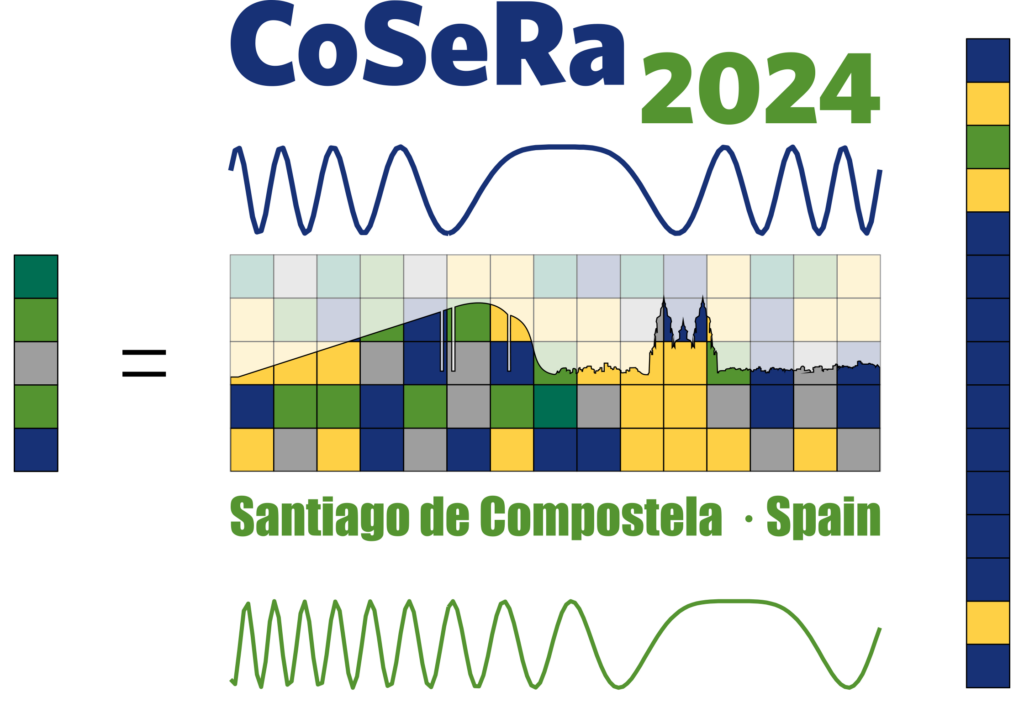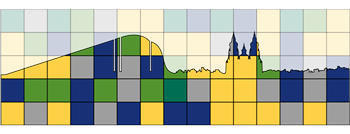Santiago de Compostela
Following the success of the previous editions of the CoSeRa workshop, we are pleased to announce the 6th International Workshop on the Theory of Computational Sensing and its applications to Radar, Multimodal Sensing, and Imaging (CoSeRa 2024).
It will be held in Santiago de Compostela (Spain) on September 18-20, 2024. The aim of CoSeRa is to explore computational sensing, the joint design of sensing hardware and reconstruction algorithms both from the theory and the application perspective.
CoSeRa 2024 will bring together researchers on the mathematical foundations of computational sensing and imaging with engineers applying these paradigms to radar and other types of sensing and imaging. Thus, contributions studying computational sensing theory are equally welcome as those exploring the paradigm in various applications.
Topics of interest include (but are not limited to):
Fundamentals, mathematical aspects, concepts and algorithms of computational sensing including topics such as
- Compressed sensing and sparse modeling
- Low-rank models and low-rank matrix recovery
- Low-rank + sparse models
- Matrix and tensor decompositions
- Sampling theory and its role for sensing designs
- Theory of high-dynamic range sensing
- Machine-learning based methods in unified sensing pipelines
- Dictionary learning
- Nonlinearities in sensing designs (quantization, saturation, …)
Applications of computational sensing to:
- Radar systems (SAR and ISAR imaging, MIMO, waveform design, …)
- Imaging radar (SAR, ISAR),
- THz imaging and material analysis,
- Digital optics, time-resolved imaging (ToF depth imaging, ultrafast photography), hyperspectral imaging, microscopy
- Ultrafast imaging
- Systems for medical diagnostics (CT, MRT, X-ray, ultrasonography)
- X-ray crystallography,
- Acoustic systems, microphone arrays, SONAR systems,
- Radio astronomy
- Photoacoustic imaging
System design and hardware for computational sensing
- Analog to information converters
- Sampling strategies, sparse array design
- A/D-converter design
Application of matrix decomposition and tensor-based techniques for sensor systems
- Blind deconvolution, blind calibration
- Separation of foreground and background, change detection
Quality evaluation
- Estimation based on compressed sensing and the CRB
- Evaluation of super-resolution
- Off-grid evaluation
- Detection probabilities
All accepted and presented papers will be published by IEEEXplore
Important deadlines
Santiago de Compostela
Submissions of Abstracts and Live Demos start on:
Submit it for review by:
Full five-page paper submission:
March 15
Notification of acceptance:
April 30
Final camera-ready papers and author registration:
May 31
Submission of Papers
Prospective authors are invited to submit full-length papers of up to five pages (including figures and references).

Location and Venue
Santiago de Compostela (Spain)


